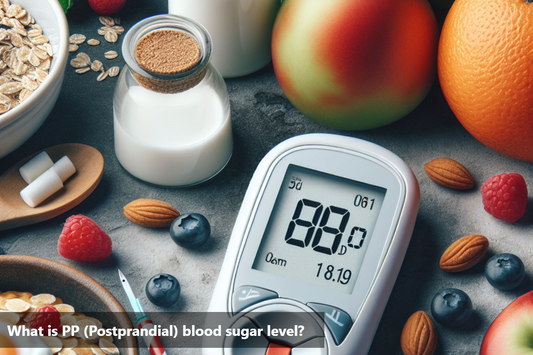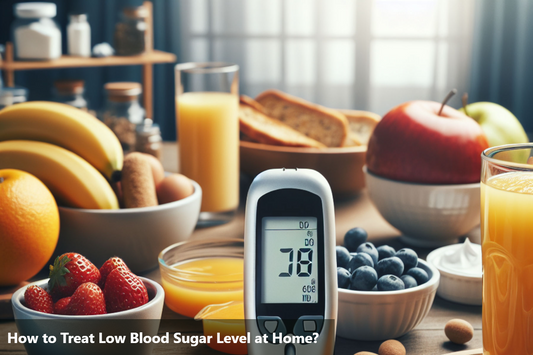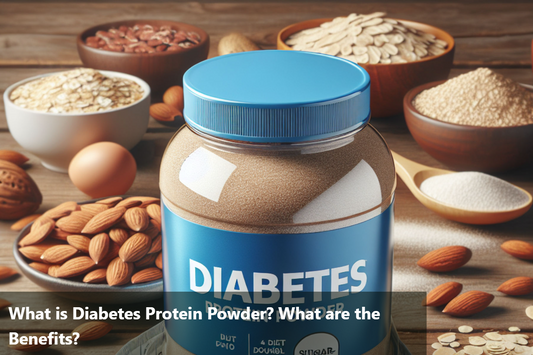Insulin resistance occurs when the body's cells have a diminished response to insulin, a hormone essential for regulating blood sugar levels. The reduced sensitivity to insulin leads to elevated blood sugar levels, potentially causing health complications.
Certain risk factors, including a family history of diabetes, high blood pressure, and polycystic ovary syndrome, can elevate the likelihood of insulin resistance. Understanding the root causes and recognizing symptoms early on is crucial for effective management.
Common Causes
Obesity: Excess body fat, especially around the abdomen, is strongly linked to insulin resistance.
Sedentary Lifestyle: Lack of physical activity reduces the body's ability to use insulin effectively.
Poor Diet: Consuming high-calorie, high-sugar foods and beverages can contribute to insulin resistance.
Genetics: Family history and genetic factors can predispose individuals to insulin resistance.
Age: Insulin resistance tends to increase with age, particularly after age 45.
Hormonal Imbalances: Conditions such as polycystic ovary syndrome (PCOS) and hormonal changes during pregnancy can lead to insulin resistance.
Sleep Disorders: Lack of quality sleep and conditions like sleep apnea are associated with insulin resistance.
Stress: Chronic stress can increase cortisol levels, which may interfere with insulin function.
Certain Medications: Some medications, such as corticosteroids and antipsychotics, can contribute to insulin resistance.
Smoking: Tobacco use has been linked to insulin resistance and an increased risk of type 2 diabetes.
Symptoms of Insulin Resistance
Fatigue: Feeling tired after high-carb meals.
Increased Hunger: Feeling hungry often despite regular meals.
Weight Gain: Insulin resistance can lead to abdominal weight gain.
Difficulty Losing Weight: Struggling to lose weight even with diet and exercise.
Frequent Urination: Higher insulin levels can cause increased urination.
Increased Thirst: Excessive thirst due to frequent urination.
Brain Fog: Difficulty concentrating or mental clarity.
Skin Changes: Acanthosis nigricans, characterized by dark skin patches.
High Blood Pressure: Associated with insulin resistance.
High Triglycerides and Low HDL Cholesterol: Elevated triglycerides and low HDL cholesterol increase heart disease risk.
Diagnosis of Insulin Resistance
Diagnosing insulin resistance involves medical history, physical exam, and tests. Common methods include:
Medical History: Providers ask about risk factors like obesity and diabetes.
Physical Exam: Checks for signs like abdominal obesity, skin tags, and high blood pressure.
-
Blood Tests:
Fasting Plasma Glucose Test
Oral Glucose Tolerance Test
Hemoglobin A1c Test
Insulin Sensitivity Tests
Other Laboratory Tests
Imaging Studies: May include ultrasound or CT scans.
Insulin Resistance Diet and Lifestyle Changes
Choose Low Glycemic Index (GI) Foods: Focus on consuming foods with a low glycemic index to help stabilize blood sugar levels. These include non-starchy vegetables, legumes, whole grains, and fruits with a lower sugar content.
Balanced Macronutrient Intake: Aim for a balanced intake of carbohydrates, proteins, and healthy fats. Incorporate lean proteins such as poultry, fish, tofu, and beans, healthy fats from sources like avocados, nuts, seeds, and olive oil, and complex carbohydrates from whole grains, vegetables, and fruits.
Limit Refined Carbohydrates and Sugars: Minimize consumption of refined carbohydrates like white bread, white rice, sugary snacks, and beverages, as they can cause rapid spikes in blood sugar levels and worsen insulin resistance.
Portion Control: Pay attention to portion sizes to prevent overeating and help manage weight, as excess body weight can contribute to insulin resistance.
Regular Physical Activity: Engage in regular exercise to improve insulin sensitivity and help control blood sugar levels. Aim for at least 150 minutes of moderate-intensity aerobic activity per week, along with strength training exercises.
Weight Management: Maintain a healthy weight or strive to achieve weight loss if overweight or obese. Even modest weight loss can significantly improve insulin sensitivity and reduce the risk of type 2 diabetes.
Hydration: Stay hydrated by drinking plenty of water throughout the day, as dehydration can affect blood sugar regulation and overall health.
Stress Management: Practice stress-reducing techniques such as mindfulness, meditation, yoga, deep breathing exercises, or hobbies to help manage stress levels. Chronic stress can contribute to insulin resistance and worsen blood sugar control.
Adequate Sleep: Prioritize quality sleep and aim for 7-9 hours of restorative sleep each night. Poor sleep patterns and insufficient sleep duration can affect hormone regulation, including insulin sensitivity.
Regular Monitoring: Work closely with healthcare providers to monitor blood sugar levels, insulin levels, lipid profiles, and other relevant markers to assess progress and make necessary adjustments to the treatment plan.
Insulin Resistance Treatments
-
Lifestyle Modifications:
Healthy Diet: Adopt a balanced diet rich in whole grains, lean proteins, healthy fats, and high-fiber foods. Limit the intake of refined carbohydrates and sugars.
Regular Exercise: Engage in regular physical activity, including aerobic exercises, strength training, and flexibility exercises, to improve insulin sensitivity and control weight.
Weight Management: Maintain a healthy weight or aim for weight loss if overweight or obese, as excess body fat can contribute to insulin resistance.
Stress Reduction: Practice stress-reducing techniques such as mindfulness, meditation, deep breathing exercises, or hobbies to manage stress levels, which can impact insulin sensitivity.
Adequate Sleep: Prioritize quality sleep and aim for 7-9 hours of sleep per night to support hormone regulation, including insulin sensitivity.
-
Medications:
Metformin: This oral medication is commonly prescribed to improve insulin sensitivity and lower blood sugar levels in people with insulin resistance or prediabetes.
Thiazolidinediones (TZDs): TZDs are another class of medications that can improve insulin sensitivity by targeting receptors in fat, muscle, and liver cells.
GLP-1 Receptor Agonists: These injectable medications can improve insulin secretion, slow gastric emptying, and promote weight loss in people with insulin resistance or type 2 diabetes.
SGLT-2 Inhibitors: These medications lower blood sugar levels by increasing the excretion of glucose in the urine. They may also reduce the risk of cardiovascular events in people with diabetes.
Insulin Therapy: In some cases, insulin therapy may be necessary to control blood sugar levels when other treatments are not effective in managing insulin resistance or type 2 diabetes.
Management of Associated Conditions: Insulin resistance is often associated with other health conditions such as hypertension, dyslipidemia, and fatty liver disease. Treating these conditions through lifestyle changes and medications can help improve overall health and reduce the risk of complications.
Regular Monitoring and Follow-up: It's important for individuals with insulin resistance to monitor their blood sugar levels, lipid profiles, and other relevant markers regularly. Healthcare providers can assess progress, make necessary adjustments to the treatment plan, and provide ongoing support and education.
Final Thoughts on Managing Insulin Resistance
Managing insulin resistance is essential for health.
Prioritize lifestyle changes, seek medical advice, focus on a balanced diet, include whole foods, fruits, vegetables, lean proteins, and healthy fats.
Engage in regular physical activity like walking, cycling, or strength training.
Consult healthcare professionals for personalized treatment options.
Take a holistic approach combining diet, exercise, and medical guidance to improve health.
This Blog post is an initiative by DiabeSmart, to provide accurate and Nutritionist / Doctor approved information related to Diabetes. DiabeSmart is India's first Food brand designed specifically for Diabetics, that has been clinically tested on Diabetics and Pre-Diabetics to deliver 55% - 70% lower Sugar spikes. DiabeSmart is part of Lo! Foods - India's leading brand for Everyday Functional Health foods.







